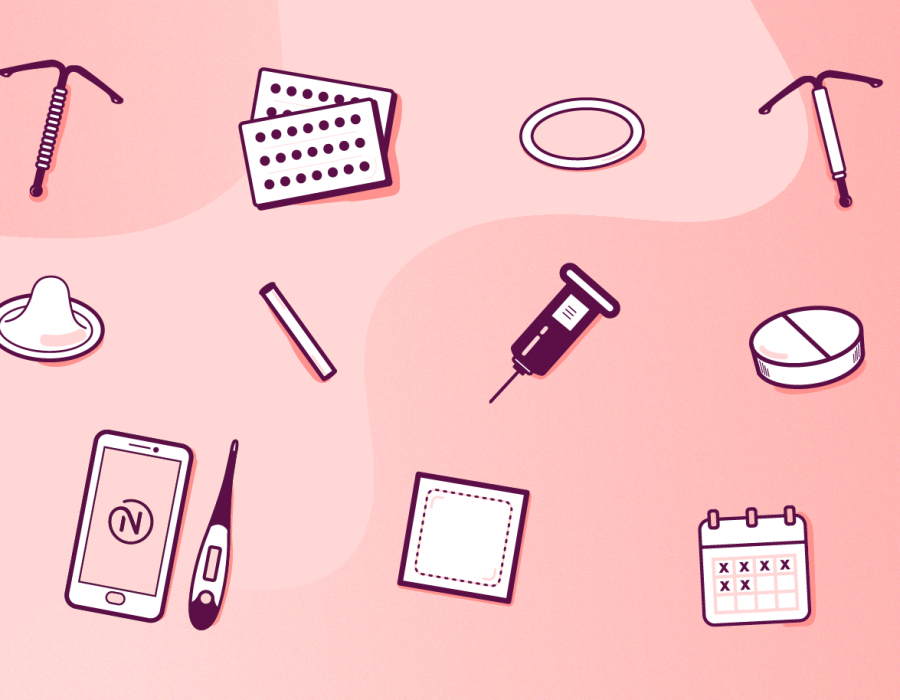There are many myths and misconceptions about contraception. That's why a woman can still get pregnant if she douches after sex or has sex during her periods. Even though there are a number of birth control methods that are very effective in preventing pregnancy, misinformation about how to use contraception and some methods that just don't work can lead to unwanted pregnancy and other complications. In this article, we have gathered seven common myths about contraception you should be aware of.
1. All types of contraception prevent the spread of STDs
There are two common types of contraception, hormonal and non-hormonal (barrier). Hormonal contraception includes pills, implants, IUDs, patches, etc that contain hormones to suppress ovulation. Barrier contraception includes condoms (male and female), diaphragms, copper IUDs, cervical cups, and other options that don’t let the sperm penetrate the uterus. But the point is that only condoms can decrease your risk of getting STDs since these infections and viruses can be transmitted through affected skin on the genitals.
2. Withdrawal method is effective
Many people tend to use a withdrawal (pull-out) method of contraception during sex. Indeed, it can be a quite effective way to prevent pregnancy but only if a woman is not ovulating and med completely controls himself. However, the withdrawal method of contraception doesn’t prevent the transmission of STDs.
3. There is no need to use contraception during periods
Many people think that it is impossible to get pregnant during periods. But the reality is that many women have conceived when they have had sex during menstruation. The point is that the sperm can continue to be active in the vagina and uterus for several days and fertilize the egg when ovulation occurs. Moreover, if you have a late period and ovulate earlier, they may overlap and you may get pregnant. If you don’t want to have children now, you can visit an abortion clinic.
4. Hormonal contraception causes infertility
There is a common misconception that hormonal birth control can lead to the development of infertility. But the truth is that many women have conceived when they were late even for a few days with a birth control implant, IUD, or have skipped a pill or two. Additionally, hormonal contraception is a part of fibroid treatment that can help ease symptoms of this condition.
5. Hormonal contraception works from the very first day
There is a common misconception that birth control pills are effective immediately after you begin taking them. But you should know that most women need at least one week for the hormones in the pill (oral hormonal contraceptives) to interact with the woman's natural hormones and prevent ovulation. Additionally, pills will be effective if you will take them as directed.
6. Douching can prevent pregnancy
It is important to understand that douching is not an effective method of contraception. After ejaculation, sperm enters the cervix and can't be removed with the help of douching. Additionally, douching is not recommended by gynecologists as it can disrupt the delicate bacterial balance of the vagina and cause irritation or infection. Many women who douche develop bacterial vaginosis and other unpleasant complications.
7. You can use contraception only during the day of ovulation
Indeed, your chances to get pregnant are the highest during ovulation and you should use contraception if you want to prevent pregnancy. But you should understand that there is a fertile window that occurs during approximately 5 days around ovulation. During this period, you can easily get pregnant. As mentioned above, sperm can live in the female reproductive tract for up to five days. That’s why it is better to use contraception every time you have sex.






Comments